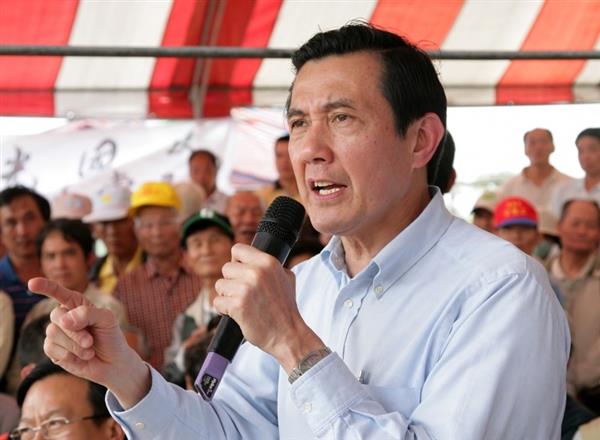News & activities
 News releases
News releases
President Ma Ying-jeou attended an event at noon on April 3 at Fangyuan Township in Changhua County that was held to protest the proposed construction of Kuokuang Petrochemical complex in the area. The president solicited the opinions of residents in the area, and pledged to immediately direct the Environmental Protection Administration (EPA) to regulate the emission of PM2.5 particulates (i.e. fine particulate matter of less than 2.5 micrometers in diameter). At the same time, he also called on the Construction and Planning Agency under the Ministry of the Interior to quickly complete the designated procedures to evaluate the wetlands in Changhua County.
The president stressed that the objective of his visit was to understand the potential impact of the proposed Kuokuang Petrochemical complex on the area, and to personally hear the views of the area's residents. Before attending a meal prior to the activity, the president met with Lin Jimin (林濟民) and Lin Lianzong (林連宗)—the director and chairman, respectively, of the Fangyuan Township Anti-Pollution Self-Help Association—as well as with chiefs of five villages within the township. During the 50-minute meeting, the president was briefed on the health impact of exposure to PM2.5 particulates. The local leaders also explained the potential impact of the project on the livelihood of farmers and fishermen, the problem of insufficient water resources and ground subsidence, and the effect that the project would have on wetlands conservation. Commenting on the health issue, the president stated that he will immediately direct the EPA to regulate the emission of PM2.5 particulates, and to amend any laws and regulations that need revision. As for the wetlands, the president pointed out that Taiwan is presently home to 82 large wetland areas covering over 50,000 hectares. He said he will ask the Ministry of the Interior's 19-person evaluation task force to immediately evaluate three wetland areas (Hanbao, Dacheng, and the mouth of the Zhuoshui River) in Changhua County.
The president remarked that the ROC Constitution clearly states that economic development and environmental protection should be given equal consideration, and the Basic Environment Act also provides that, in the event that economic development has a seriously negative impact on the environment or endangers it, the protection of the environment shall prevail. He said that the government will continue to embrace this principle in the future and that careful consideration is required on all fronts to ensure that the best decisions are made for Taiwan's environment and its people.



